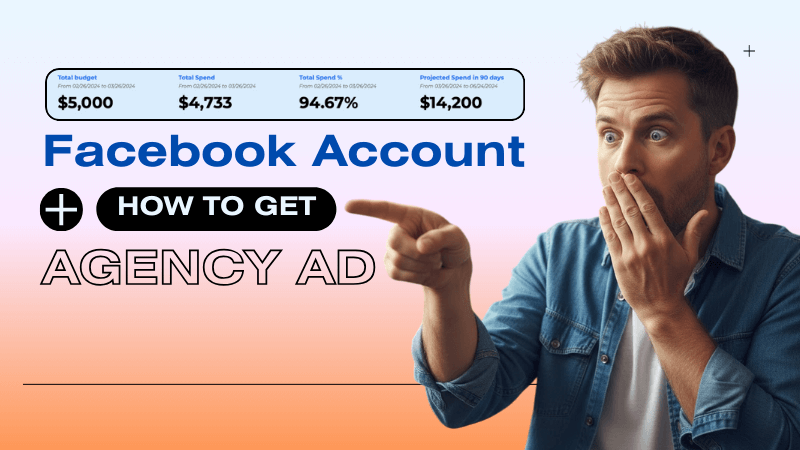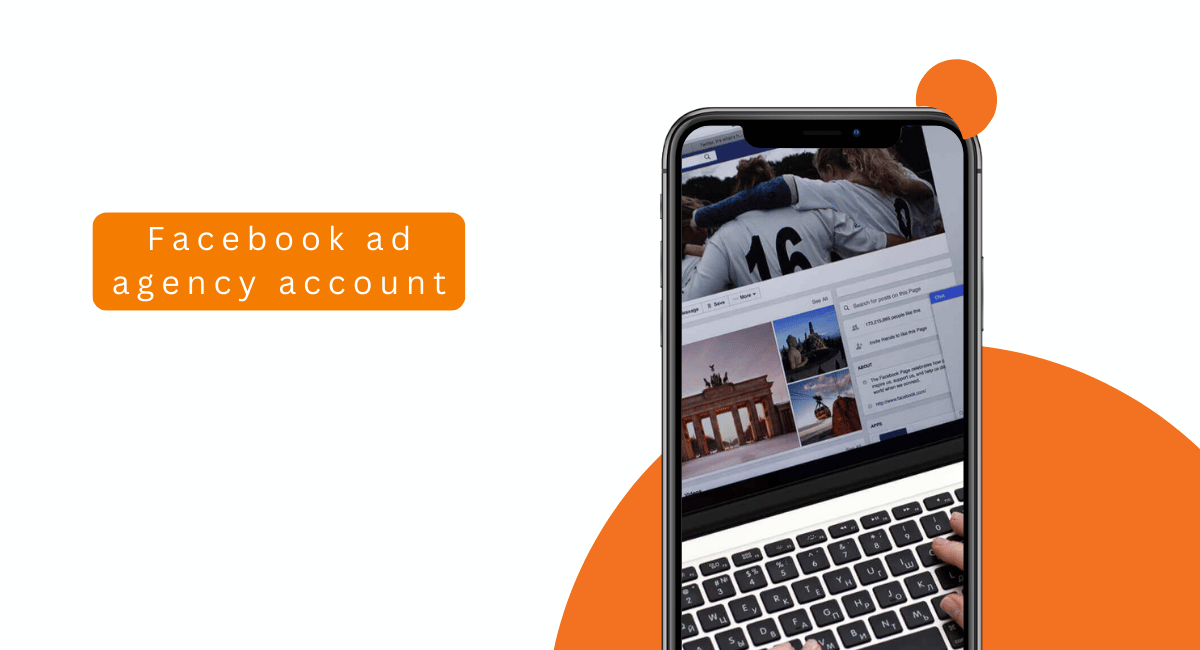Post map
ToggleIn the digital age, PPC is one of the powerful advertising tools that helps businesses increase their online presence and attract target customers. In this form of advertising, businesses can not only reach the right potential customers, quickly boost sales, and effectively control costs. However, not everyone fully understands what PPC is, as well as how to use and manage it to achieve the best results. Don't worry, follow the article below from Soc Lua Agency to learn more!
What is PPC?
PPC stands for Pay Per Click, which is an advertising model where businesses pay each time someone clicks on their ad. It is an online marketing model that allows businesses to place ads on SERPs (Search Engine Results Pages), social media platforms, and other websites. The goal of a PPC campaign is to drive traffic to the website and convert potential customers into actual paying customers.
In this online advertising model, businesses create ads and set a bid for each click on the ad. With PPC ads, businesses can set a maximum spend limit for each click, and the cost will vary depending on the level of competition and the performance of the ad.
When a user clicks on the ad, the business only pays based on the bid set for the campaign. PPC ads are displayed on search engines like Google and Bing, or social media platforms like Twitter, LinkedIn, and Facebook.
PPC advertising works on the principle of keyword auction. Advertisers bid on keywords they want their ads to appear for when users perform searches related to their products or services. If someone searches for one of those keywords and clicks on the ad, the business will need to pay the bid amount.
The bid for each click in PPC plays a crucial role in determining the ad rank on the advertising platform. The bid and the quality of the ad will determine which ads appear and how often they are displayed. The quality score of the ad is influenced by the cost of the ad, the quality of the landing page, and the click-through rate (CTR).
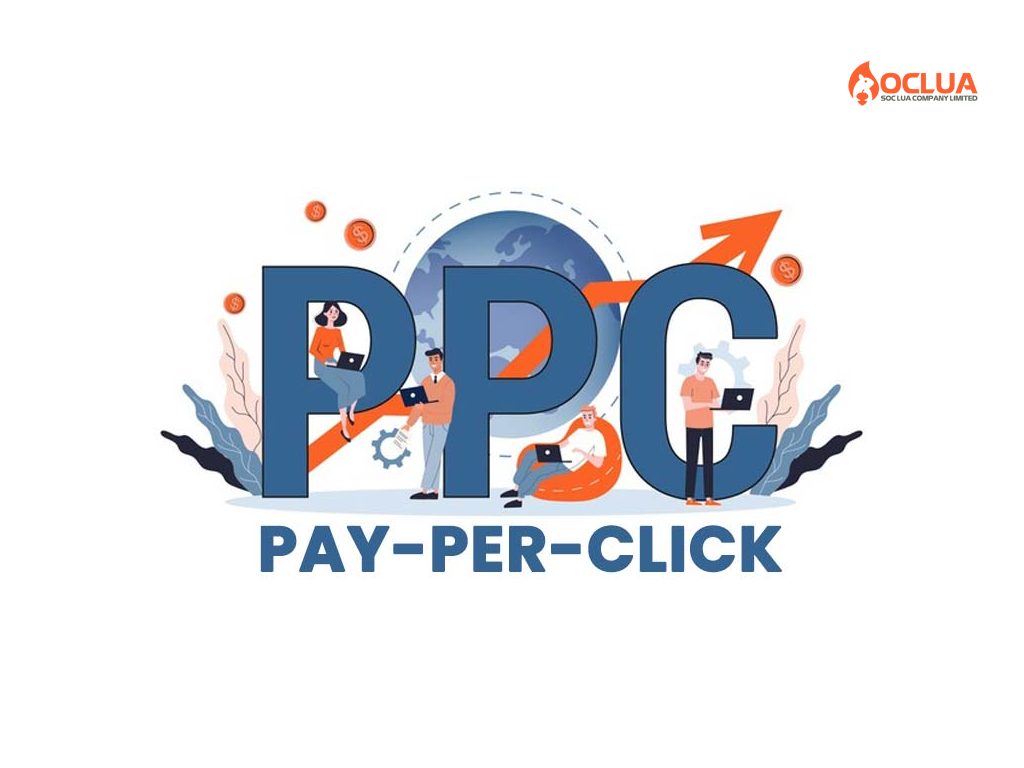
Common Types of PPC Advertising
Paid Search Ads
This is the most popular form of PPC advertising, appearing on the Search Engine Results Pages (SERPs) of search engines like Google, Bing, etc. When users search for keywords related to a business's products or services, the ads will appear at the top or beside the organic search results.
This type of advertising is very effective in attracting customers who are actively searching and have an intention to make a purchase. It especially attracts users who are genuinely interested in the product or service, thus increasing the purchase rate. When customers click on the ad, they are directed to the landing page where persuasive content and clear calls to action encourage them to make a purchase.
Paid Social Ads
These ads appear on social media platforms such as Facebook, Instagram, LinkedIn, and Twitter. Advertisers can target based on demographic information, interests, and user behaviors. The ads will appear in users' news feeds, stories, and other positions on the platform to increase engagement, drive website traffic, or encourage conversions.
Display Ads
These include banners, images, and video ads that are displayed on websites, mobile apps, or social media networks. The ads often appear in prominent positions, catching the attention of users as they browse different websites, and helping increase brand awareness. With a wide-reaching display network, Display Ads allow businesses to reach a large target audience, while encouraging them to click on the ad to increase traffic. By displaying ads relevant to users' interests and needs, it drives immediate purchases.
Remarketing Ads
This type of ad is shown to people who have already visited or interacted with your products or services. The goal is to remind users about your product or service and encourage them to return and make a purchase. Remarketing Ads are an excellent choice for reconnecting with people who have shown interest in your product or service. Additionally, you can encourage customers to purchase more products and increase the order value. Furthermore, you can build a long-term relationship with customers by maintaining their interest.

Outstanding Advantages of PPC Advertising
PPC advertising is an essential part of many businesses online marketing strategies because it offers the following benefits:
Reach Potential Customers
PPC allows businesses to directly reach potential customers when they are actively searching for related products or services. This increases the chances of conversion and drives high-quality traffic from the target audience. You can target customers based on criteria such as location, language, age, gender, and more.
Cost-Effective
Compared to other advertising methods, PPC is a cost-effective approach in terms of time and money. Businesses only pay when someone clicks on the ad and visits their website. Additionally, you can control your spending efficiently by setting a budget and a reasonable bid. The money invested ensures that ads are displayed to the right audience and help convert potential customers into actual buyers.
Easy to Track Campaign Effectiveness
PPC campaigns can be set up to measure effectiveness in a detailed manner. Businesses can precisely track how much they have spent and the return on investment (ROI). PPC allows businesses to monitor key metrics like click-through rate (CTR), impressions, etc. This enables businesses to analyze which ads generate the most traffic and which campaigns yield the highest profit, allowing for adjustments as needed.
Quick Results
While SEO requires time and effort to see results in terms of traffic and search engine rankings, PPC allows businesses to set up campaigns quickly and start reaching customers, producing fast results, increasing conversion rates, and achieving maximum ROI. PPC not only delivers rapid results but also supports SEO efforts in driving website traffic.
Tight Campaign Control
With PPC advertising, businesses have full control over their campaigns. They can decide on the content of the ads, where they will appear, and which audience will see them. Additionally, businesses can manage the advertising budget effectively and plan campaigns that target the right customers, maximizing their experience and driving traffic. Campaigns can also be paused at any time as needed.
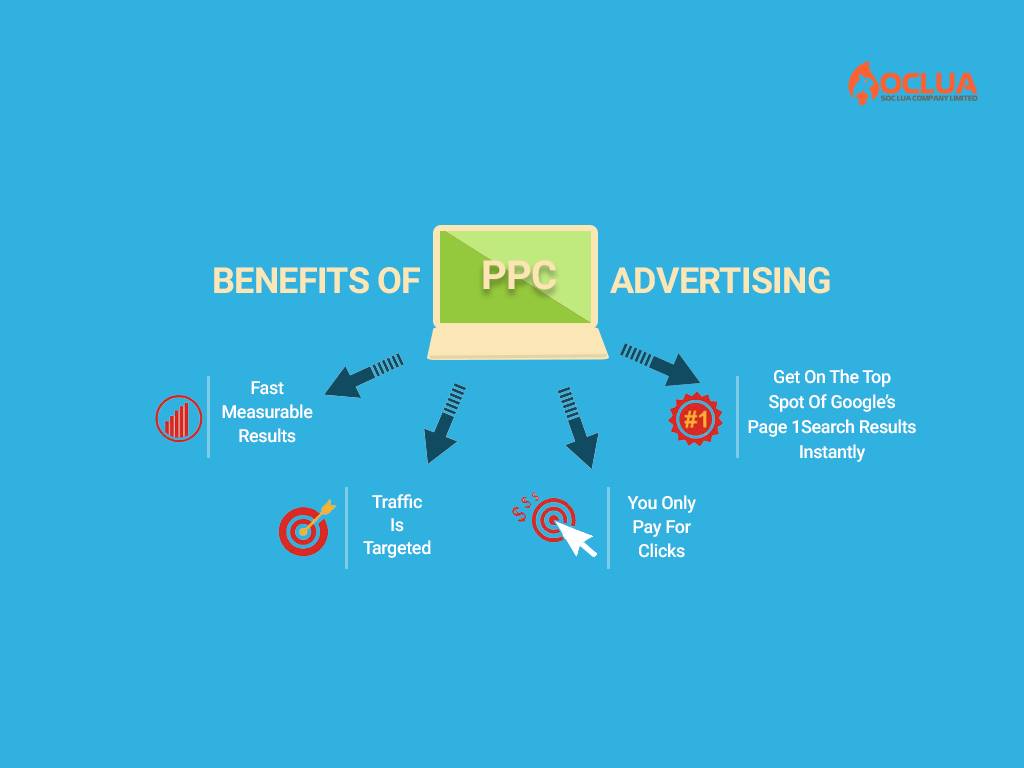
How to Create a Successful PPC Campaign
Set Clear Goals
Before starting your campaign, clearly define your objectives, such as increasing website traffic, boosting sign-ups, or driving sales. By selecting specific goals, you can determine the desired outcomes, helping you focus your advertising strategy on the most crucial activities needed to achieve them.
Research and Build a Conversion-Focused Keyword List
This is the first and most critical step to a successful PPC campaign—identifying the keywords potential customers use to search for products or services. To discover relevant keywords and build a high-conversion keyword list, you can use tools like Google Keyword Planner, SEMrush, or Ahrefs to explore related keywords, analyze search volume, and competition. By doing so, businesses can focus on keywords with the highest conversion potential.
Create Engaging and Attractive Ad Content
In addition to building a high-quality keyword list to target the right customers, you need to create compelling ad content that grabs attention and encourages action. Ensure that your ad headline is catchy and relevant to the target keywords. Use clear language, persuasive messaging that highlights the benefits of your product or service, and include a strong call to action. Always ensure the ad content is aligned with the landing page to reduce bounce rates after the ad is clicked.
Set Up Well-Organized Ad Groups
Creating well-structured ad groups helps organize your PPC campaign to improve overall performance by grouping related keywords together. Each ad group should focus on a specific topic or product. This enables you to create ads that are relevant and landing pages that match each group. Ideally, each ad group should contain 10-20 keywords.
Manage Your Budget
Budget management is a crucial factor in achieving high ROI from your PPC campaign. Set an overall budget based on your business goals and allocate it across different campaigns and ad groups. Adjust your budget based on historical performance data, and evaluate your bidding strategy to optimize your spending. To identify areas for improvement, review metrics such as CPC, CTR, and conversion rates.
Optimizing Landing Pages
This is an important factor to ensure the success of the campaign. Make sure the landing page is consistent with the ad content and target keywords. Especially ensure the main message and call to action are clear and convincing. Design the landing page to be easy to navigate, fast to load and mobile-friendly.
Use high-quality images and videos to convey the message quickly and attract customers' attention. You should regularly test and optimize the landing page based on analytics data to improve the conversion rate.
Conduct A/B testing
One of the methods to continuously improve the performance of PPC campaigns is to create test versions of elements such as ad headlines, ad content or landing pages and compare the performance. Then, you can identify the elements that need improvement by analyzing the results to determine which version has the highest performance to make appropriate adjustments.
The article has provided useful information to help you better understand what PPC is and how to deploy and optimize advertising performance most effectively. Hopefully, through this, you can learn how to use and manage PPC campaigns to achieve high and fast results.
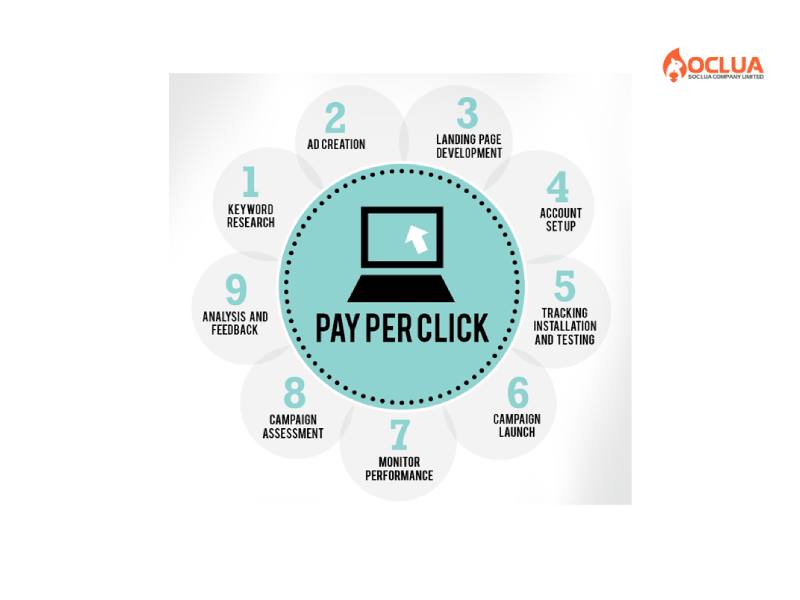
Frequently Asked Questions
The cost of PPC advertising varies depending on the industry, platform, customer life cycle, consumer trends, and the financial management ability of the business. In popular areas of low-cost products such as food and fashion, PPC advertising costs are often very low. For platforms, Google Ads PPC costs are often higher than Facebook.
The answer is absolutely yes. You can use PPC and SEO together to achieve the best results. Accordingly, you can use PPC to target keywords and audiences you want to attract. Results from PPC will be seen immediately after the campaign is activated. To see the effectiveness and optimize the campaign, you need at least 2 - 4 weeks to collect enough meaningful data. Then use SEO to optimize the website for those keywords, increase organic traffic, and save costs.

